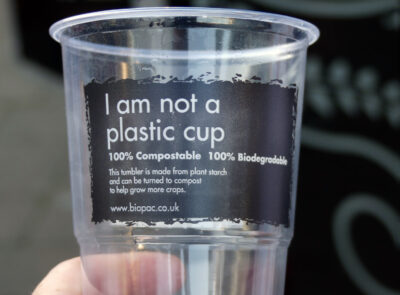Compostable Plastic vs Recyclable Plastic
We were recently asked to explain the difference between compostable plastic and recyclable plastic. Let’s investigate the new, green world of Bioplastics:
Bioplastics are plastic alternatives made from renewable resources. These new plastics can be composted in some circumstances, but they are NOT recyclable. If you see common bioplastics, like “compostable” cups, plates, to-go containers, and utensils, remember these are industrial compost only. These items are often made from sugarcane, oil waste, or waste pulp and are not able to be recycled into new plastic products. These items may have deceptive recycling labels, such as saying “Reduce, reuse, recycle,” but are not recyclable at the WWRA.
What to look for: Bioplastics often have green labels, say “Eco-friendly, Eco-conscious, and Green,” “100% compostable,” “100% biodegradable,” or even “Reduce, reuse, recycle”. These items may have a circular version of the recycling symbol on them: that does NOT mean they are recyclable.
What to do with them: Do NOT recycle these products.
Unfortunately, bioplastics are rarely disposed of correctly. Bioplastics are recyclable in industrial composts only and will not biodegrade in your backyard compost bin. Industrial composts are hard to find and rarely accept small quantities of bioplastics. To find the nearest industrial compost, visit these resources:

